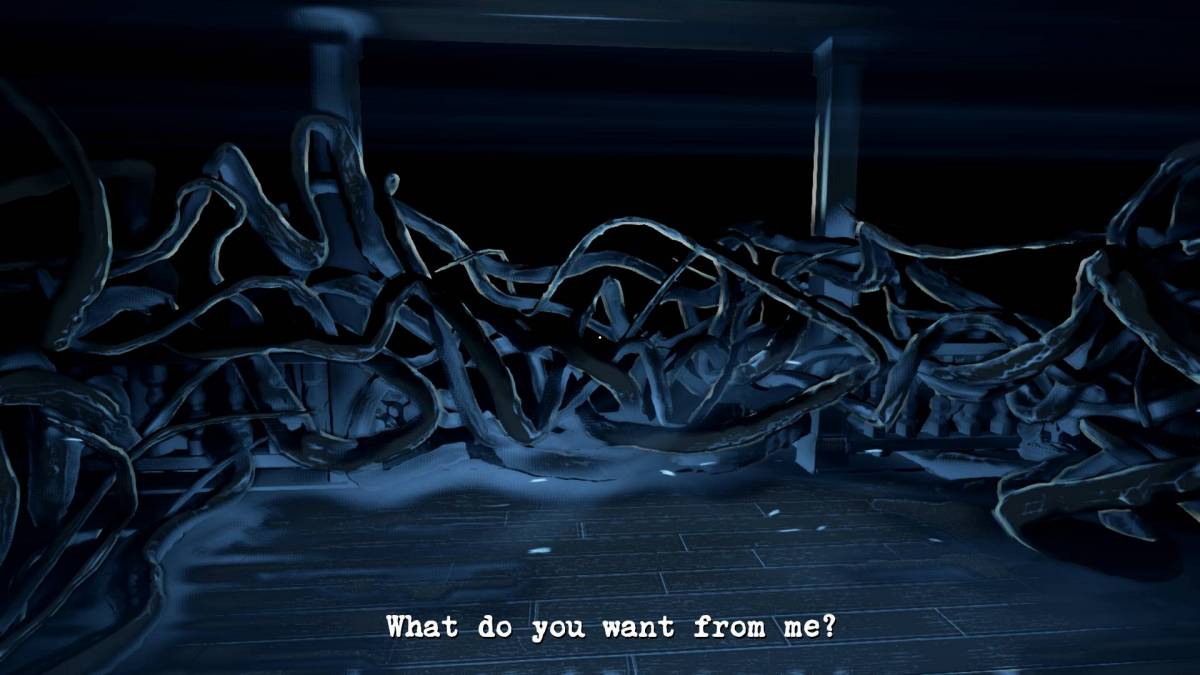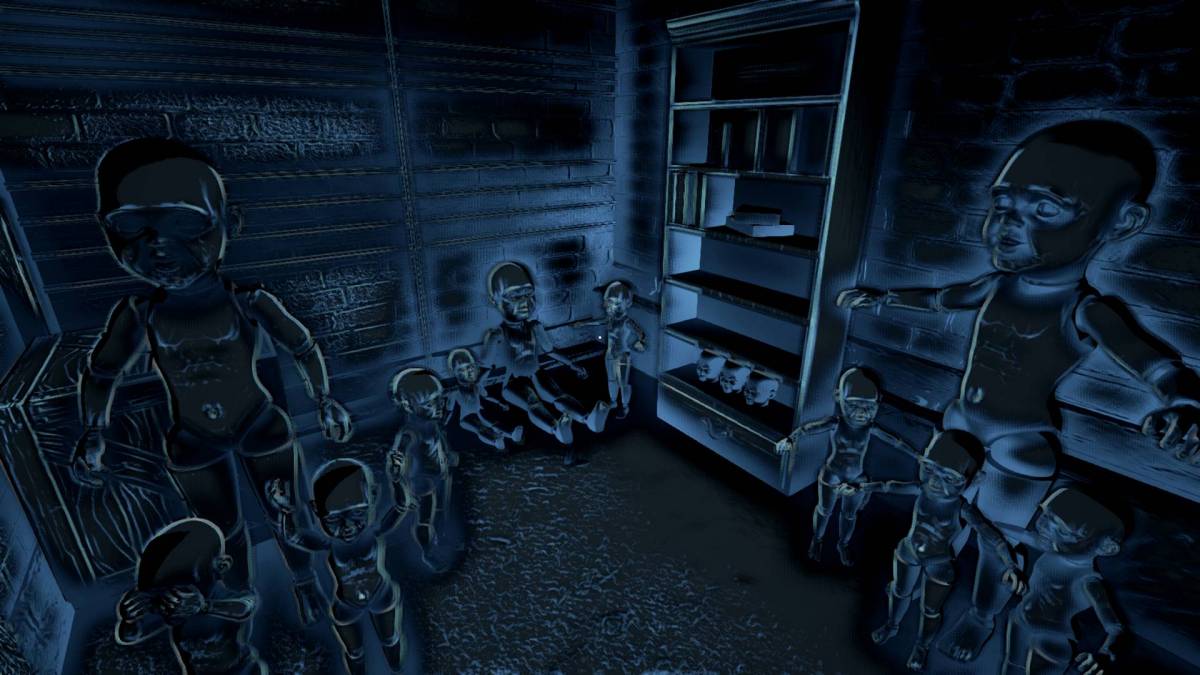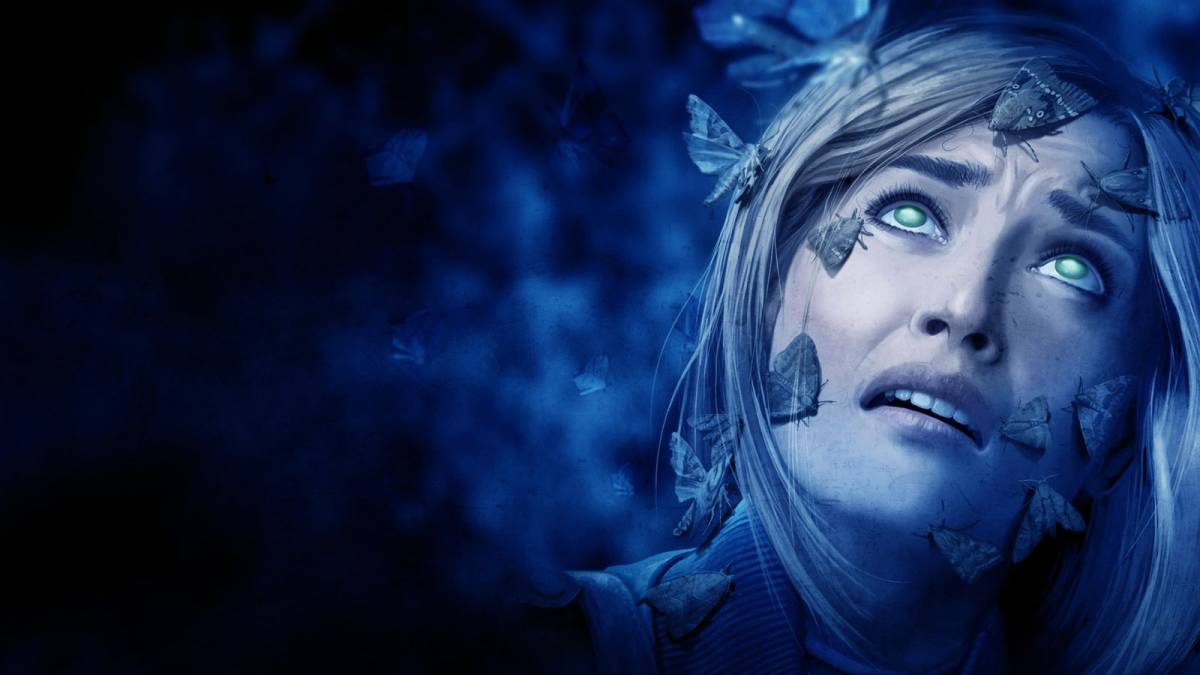Horror is evolving. Standard slashers no longer make the cut, owing to the average moviegoer’s desire to see something new, something innovative. This transition has been most obvious in movies, which, since the turn of the noughties, have ditched the rote crazed killer routine for fresh spins on tired formulas. It’s no leap to suggest that we wouldn’t have seen something like Get Out just ten years ago.
But horror games are also on the up – phoned-in overreactions to jump-scares from screaming YouTubers aren’t enough to get people interested anymore. People want more from developers. They want to be surprised, invested in the bigger picture rather than just the creature lurking around a corner. Plenty of developers are answering that call with Resident Evil 7 and Little Nightmares doing things differently and the likes of Agony and Observer still to look forward to.

Perception, the debut effort from Deep End Games, also looked like it might be a contender judging from the pedigree of its development team. Initial impressions suggested that they were creating something unique that hadn’t been really been done before within the genre and, in a way, they’ve delivered.
Following Cassie, a blind girl whose nightmares make her seek out a creepy old house, Perception’s main quirk lies in how it handles its protagonist’s disability. Using “echolocation”, a technique that allows her to see based on sound, she’s able to navigate the game’s shifting rooms to discover the secrets they hold. Much in the same way that Outlast only gives players a camera to get by, Cassie’s cane is her only comfort; hitting the environment with it temporarily reveals her surroundings.

The echolocation gives everything a blue hue, like a rotoscoped lantern seen in something like Amnesia, which Deep End Games almost certainly played as an inspiration during development. It shares some similar beats with Frictional Games’ masterpiece in that “help” has a catch. Well, there’s supposed to be. Over the three hours of gameplay that Perception offers, it regularly warns you that too much noise will attract enemies, but they never materialise, even if you’re wildly hitting the cane on the hunt for the next note or audio log.
This is a problem that seeps into a lot of Perception, that “The Presence” (the game’s big ghoul) just isn’t prominent enough. With so many of its supposedly terrifying moments relying on scripted events, any tension can fall flat when the player isn’t using echolocation, or the camera almost violently spins Cassie around to look at something that’s supposed to provide a scare, but just isn’t there. There are seemingly too many variables for Perception to consistently deliver on tension, though the narrative is what’s going to keep you playing regardless.

From the opening shot to the last, Perception is drenched in mystery. What compelled Cassie to come to this strange place? How are all of these ghosts connected? It doesn’t offer a revolution in storytelling by any means, but the small dumps of exposition found in the game’s many examinable objects certainly do wonders to immerse the player, though it must be said that Cassie herself is a character full of confusing emotions. Despite only knowing the stories of the ghosts for a matter of minutes, she often shouts at the sky at the inhumanity and pleads for their deaths to be undone. A strange way to react to dead strangers and something that the game doesn’t try to explain, just like it doesn’t do much to develop Cassie as a character.
Perception’s story threads -while always interesting- lurch from grounded to pure pulp across its four chapters. While its first two chapters venture into some melodrama, the third completely goes off the rails into R.L. Stine-esque horror territory. It leans far too heavily on the well-worn creepy doll trope, a trope which now just sees me wanting to pick them up and punt them across a field whenever they pop up in movies or games. The wheels get back on the train for the final chapter, but your opinion on Perception is probably going to be formed long before then.

Its USP is novel, but ultimately not used to its full potential. As well as echolocation, Cassie sometimes has to rely on apps to help her see her surroundings, but that’s about it. Perception seemingly doesn’t want to make a big deal of Cassie’s disability, but it fails to really explore interesting ideas, instead using her visual impairment to deliver unique aesthetics rather than anything truly meaningful.
Take the echolocation out of the equation and Perception becomes the sum of other previously seen, better implemented parts. There are horror hallmarks everywhere that have been used more effectively in the games that inspired Deep End Games, such as the aforementioned Amnesia, but it also owes credit to Bloober Team’s Layers of Fear, too.
That being said, despite it tipping its hat to other horror games so often that it must be giving itself whiplash, Perception will probably keep your attention throughout without ever truly enrapturing. The developers have poured a lot of themselves into it, which is evidenced in the game’s small moments, such as the remarkable variations in sound when different objects are hit with Cassie’s cane. Games like Perception will always be welcome, those that at least try to do something new, but its reliance on tired horror game conventions holds it back. Still, if you’re looking for something to tide you over between now and the next big horror release, Perception certainly has something to offer.
Copy provided by PR
Some of the coverage you find on Cultured Vultures contains affiliate links, which provide us with small commissions based on purchases made from visiting our site.

